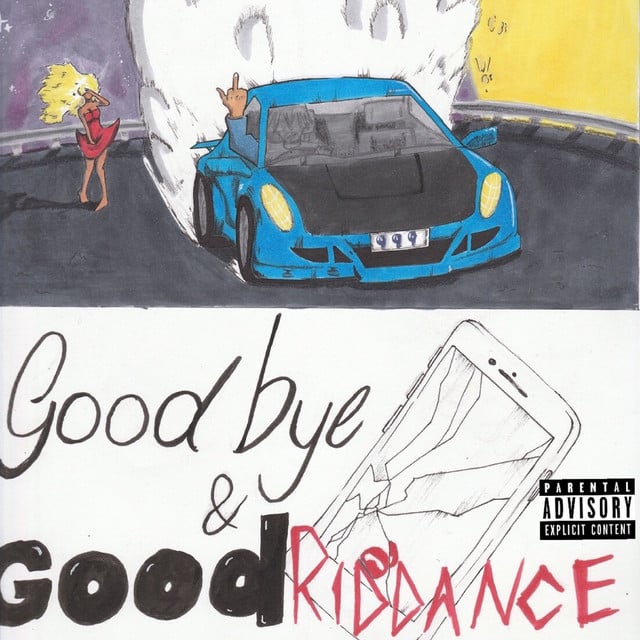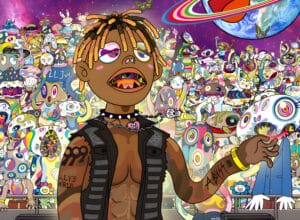Released: 2020
“Wishing Well” by Juice WRLD is a raw and heart-wrenching exploration of the rapper’s struggles with mental health and addiction. Through his vivid lyrics, he paints a picture of his battle with his demons, using the metaphor of a wishing well to symbolize his attempts to wish away his pain. The song serves both as a confession and a cry for help, offering a window into Juice WRLD’s inner turmoil.
Starting off, Juice WRLD dives straight into his distress, repeating “I can’t breathe” over an atmospheric beat. This line isn’t just a physical sensation; it’s a metaphor for feeling suffocated by his struggles. “999” mentioned right after is a flipped symbol of “666”, representing turning negativity and hellish experiences into something positive, a recurring theme in Juice WRLD’s music. The act of tossing his pain with his wishes into a “wishing well” symbolizes a mix of hope and despair, throwing his sorrows into the depths, hoping for relief while acknowledging the slim chances of his wishes being fulfilled.
The chorus is a powerful admission of his ongoing battle with depression and addiction. The “waiting for the exhale” signifies his anticipation for relief that never comes. He mentions “Perky,” referring to Percocet, a painkiller that he’s been abusing, causing him to itch “like an anthill” – a vivid depiction of the physical and psychological discomfort of drug withdrawal. The line “Drugs killing me softly, Lauryn Hill” draws a poignant parallel to Lauryn Hill’s song “Killing Me Softly”, turning it into a commentary on how his self-medication is slowly destroying him.
In the verses, Juice WRLD personifies his depression and addiction, depicting them as characters that haunt him. “Ring-ring, phone call from depression” and speaking with “addiction” indicates his continuous battle with these invisible enemies. This dialogue illustrates how deeply intertwined these elements are in his life, impacting him in very real and vivid ways. He acknowledges the cycle of his addiction – recognizing that the drugs he once used to escape his reality have now begun to control him, a realization that’s both profound and deeply tragic.
Perhaps the most heartbreaking revelation comes when he confesses, “If it wasn’t for the pills, I wouldn’t be here / But if I keep taking these pills, I won’t be here.” These lines encapsulate the deadly paradox of his addiction; the very thing that he believes keeps him alive is also what’s killing him. Juice WRLD doesn’t shy away from exposing the raw, painful truth about his dependency on drugs, a testament to his vulnerability and honesty as an artist.
The repeated lines towards the end, where he insists he’s fine but admits to lying about his true feelings, underscore the facade he maintains to prevent worrying his loved ones. This duality of wanting to be open about his struggles yet also wanting to shield others from his pain reflects the complexity of mental health issues and addiction, highlighting the internal conflict many people face.
“Wishing Well” stands as a poignant narrative of Juice WRLD’s battle with substance abuse and mental health, wrapped in metaphors and a hauntingly beautiful melody. It’s a raw, unfiltered glimpse into his soul, making it not just a song, but a powerful statement on the human condition.








